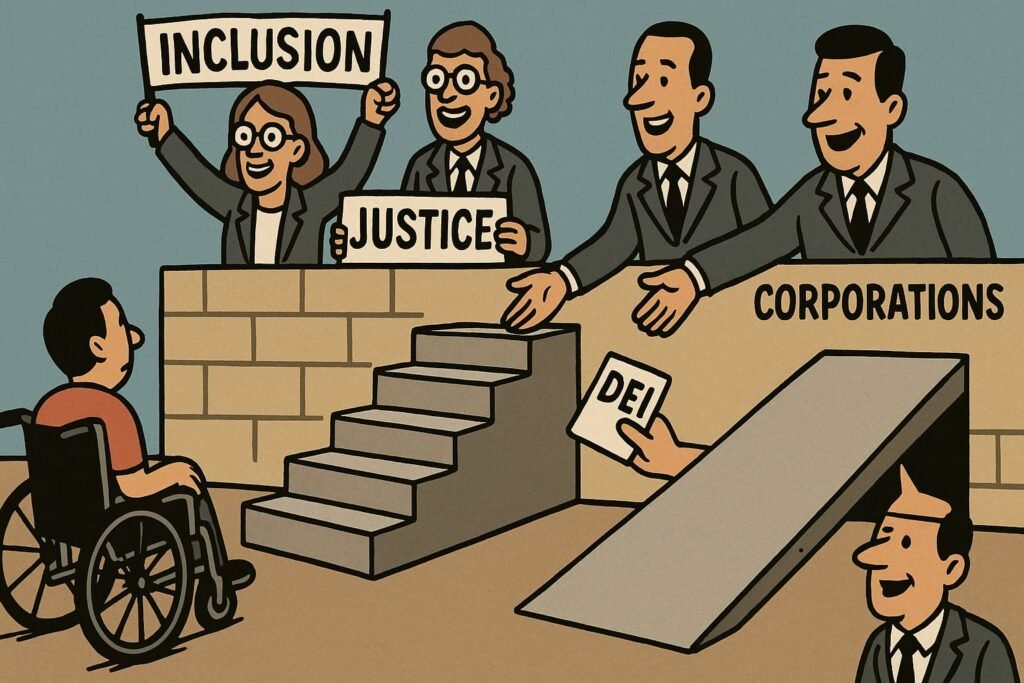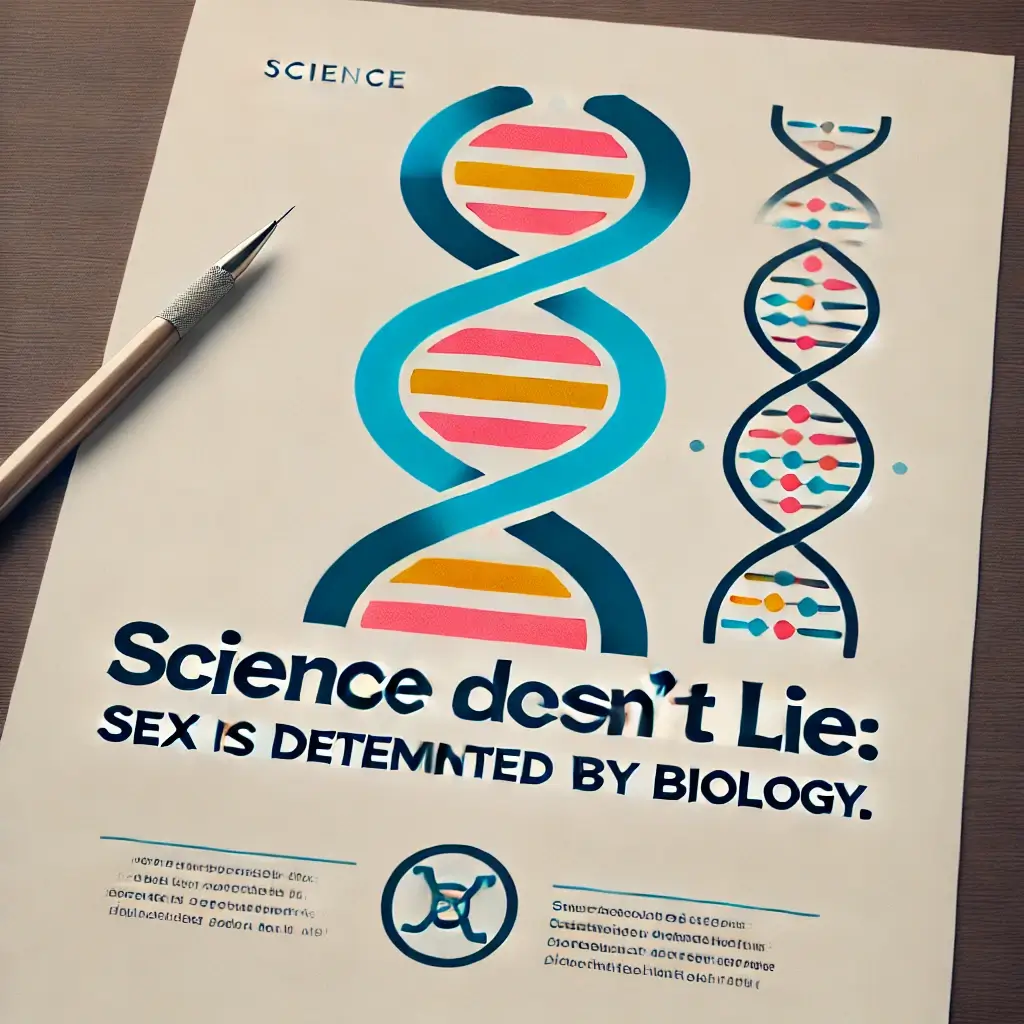Disability Studies – When Society Becomes the Disability
From Medical Condition to Oppression
For most of history, disability was seen through medicine: a condition to be treated or adapted around. Enter Disability Studies.
Born in universities, it flipped the perspective. The problem isn’t the impairment — it’s society. Stairs instead of ramps? Oppression. Health warnings? Stigma. Disability is reframed not as biology but as politics.
The promise was inclusion. The result? A worldview where almost every barrier becomes evidence of systemic oppression.
Table of contents
What Is Disability Studies?
In plain terms, Disability Studies says:
- The medical model (bad) treats disability as an individual problem.
- The social model (good) blames society for not adapting.
- Words like “handicapped” or “special needs” are oppressive labels.
- Justice, not charity, is the goal — activism over treatment.
In short: you’re not disabled by your condition, you’re disabled by society’s refusal to reorganise itself.
Buzzwords of Disability Studies
Like other Critical Theory offshoots, it comes with a vocabulary:
- Ableism – Prejudice against disabled people.
- Accessibility – The demand that all environments adapt to all conditions.
- Inclusion – Guaranteed participation, regardless of capacity or cost.
- Disability Justice – Disability reframed as part of the broader social justice movement.
These terms move disability out of medicine and into politics.
How Disability Studies Shows Up in Practice
- In Law: Expansive anti-discrimination codes and rights frameworks.
- In Education: Curriculums and training built around inclusion awareness.
- In Workplaces: HR adds disability to DEI pledges.
- In Activism: Disability tied into race, gender, and sexuality campaigns.
What began with ramps and access now fuels bureaucracies of justice.
Why Institutions Promote Disability Studies
- Academics: Endless research opportunities reframing disability as oppression.
- Activists: A new justice cause to expand movements.
- Corporations: Inclusion campaigns that polish brands cheaply.
- Politicians: Symbolic policies without fixing healthcare or support systems.
Disability Studies created new careers, committees, and departments — but not necessarily better services.
The Consequences of Disability Studies
- Overreach: Expands “disability” so broadly almost everyone qualifies.
- Less Medicine, More Politics: Practical solutions sidelined by activism.
- Bureaucracy Bloat: More officers, less care.
- Identity Creep: Disability absorbed into the justice toolkit instead of treated on its own terms.
The irony? A field designed to empower disabled people often empowers institutions and consultants more.
Why It Matters
Disability Studies isn’t just academic debate. It shapes law, schools, and workplaces. By turning disability into oppression politics, it ensures endless activism — but not necessarily better healthcare, infrastructure, or daily life for the disabled.
From Access to Activism
Disability Studies began with a valid point: society can make life harder than it needs to be. But it’s morphed into a worldview where barriers are proof of oppression and activism is the cure for everything.
The fight for ramps turned into an industry of justice slogans.
Next: Fat Studies
For a deeper understanding of Critical Theory, check out our Critical Theory Explainer Hub.
FAQ: Disability Studies
What is Disability Studies in simple terms?
It’s the idea that society creates disability by failing to adapt, not the medical condition itself.
Where did it come from?
It grew out of Critical Theory and activist movements in the late 20th century.
Why is it controversial?
Because it downplays medicine, expands “disability” into identity politics, and generates more jargon than solutions.
How does it affect society?
It drives laws, DEI programs, and activism that reframe disability as social oppression.
What’s the danger of Disability Studies?
That it prioritises activism over care, producing bureaucracy instead of real help.



